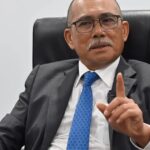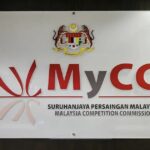Singapore Prepares for 14th General Election on May 3
Singapore is gearing up for its 14th General Election, scheduled for May 3, 2025. This will be the first election under the leadership of Prime Minister Lawrence Wong. The upcoming election will see a total of 97 seats in 33 constituencies contested, potentially involving a diverse field of 11 political parties.
Diverse Field of Parties in the Running
The electoral landscape in Singapore is expected to be vibrant with the participation of multiple political parties. While the ruling party, the People’s Action Party (PAP), has traditionally been dominant in Singaporean politics, the presence of other parties adds a layer of diversity to the electoral contest.
Key Issues and Expectations
As the election date approaches, key issues and expectations are emerging among the electorate. Singaporeans are likely to focus on a range of issues, such as economic recovery post-pandemic, healthcare policies, housing affordability, and climate change initiatives. The ability of political parties to address these concerns effectively may influence voter sentiment and election outcomes.
PM Lawrence Wong’s Leadership
Prime Minister Lawrence Wong, who assumed office following the retirement of his predecessor, faces his first electoral test as the country’s leader. His leadership style, policy decisions, and vision for Singapore’s future will be under scrutiny as voters evaluate his performance and the direction he sets for the nation.
Electoral Process and Voting Procedures
On May 3, eligible Singaporean citizens will head to the polls to cast their votes for their preferred candidates and parties. The electoral process, overseen by the Elections Department, ensures a fair and transparent voting procedure. Strict adherence to election laws and regulations is expected to maintain the integrity of the electoral process.
Media Coverage and Public Discourse
Leading up to the election, media coverage and public discourse are likely to intensify as parties campaign and present their platforms to voters. The role of the media in providing accurate and balanced information to the public is crucial for an informed electorate. Debates, interviews, and analysis of party policies will contribute to shaping voter opinions.
International Observers and Transparency
The presence of international observers during the election underscores Singapore’s commitment to transparency and credibility in its electoral process. By allowing external scrutiny of the election proceedings, Singapore aims to demonstrate its adherence to democratic principles and best practices in governance.
Post-Election Outcomes and Governance
Following the election, the composition of the parliament will determine the future governance of Singapore. The ability of the ruling party or potential coalition governments to address the nation’s challenges, implement effective policies, and respond to the needs of the people will shape the country’s trajectory in the coming years.
In conclusion, the upcoming 14th General Election in Singapore presents a significant opportunity for voters to express their preferences and shape the country’s political landscape. With a diverse field of parties, key issues at stake, and the leadership of Prime Minister Lawrence Wong in focus, the election outcome will have far-reaching implications for Singapore’s future.
Source
This article is written in response to original article.







